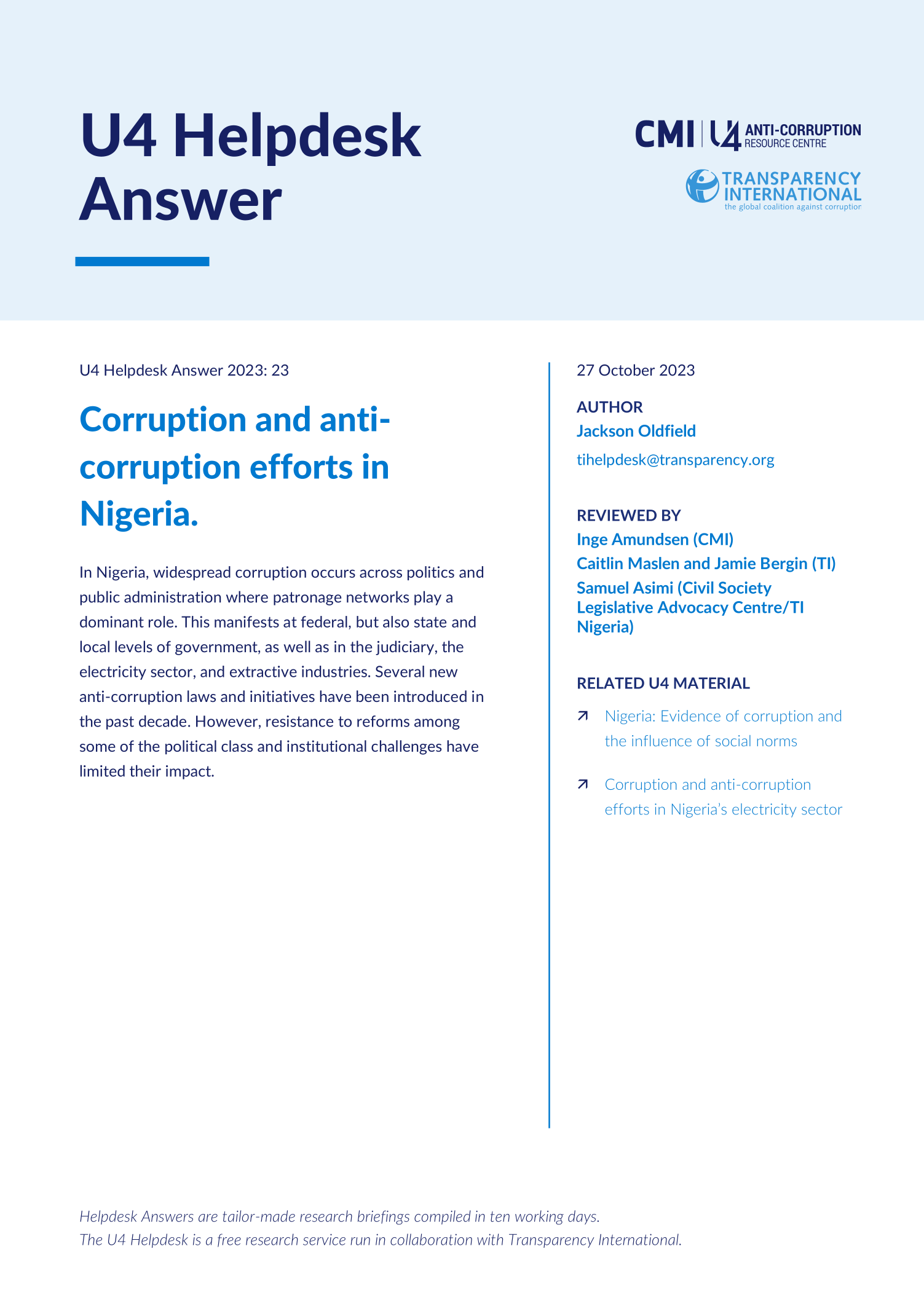Main points
- Corruption occurs at a high level, with politics used for the extraction of wealth and its distribution among patronage networks. Foreign actors, such as multinational companies, have been complicit in perpetrating corruption to Nigeria.
- Drivers of corruption in Nigeria include neo-patrimonialism and the so-called “resource curse” linked to the country’s abundance of natural resources.
- Corruption, especially bribery, takes place in many sectors, including the public administration, the judiciary, the electricity sector and extractive industries.
- A focus on corruption under the Buhari administration saw the introduction of several new laws aimed at curbing corruption. However, these have been undermined by weaknesses in anti-corruption institutions, which face challenges in performing their roles.
- Nevertheless, anti-corruption actors, including civil society organisations, continue to make addressing corruption a priority and have had some notable achievements, including in the area of asset recovery.


